AHS 2024 Annual Report
We are pleased to share the 2024 AHS Annual Report.
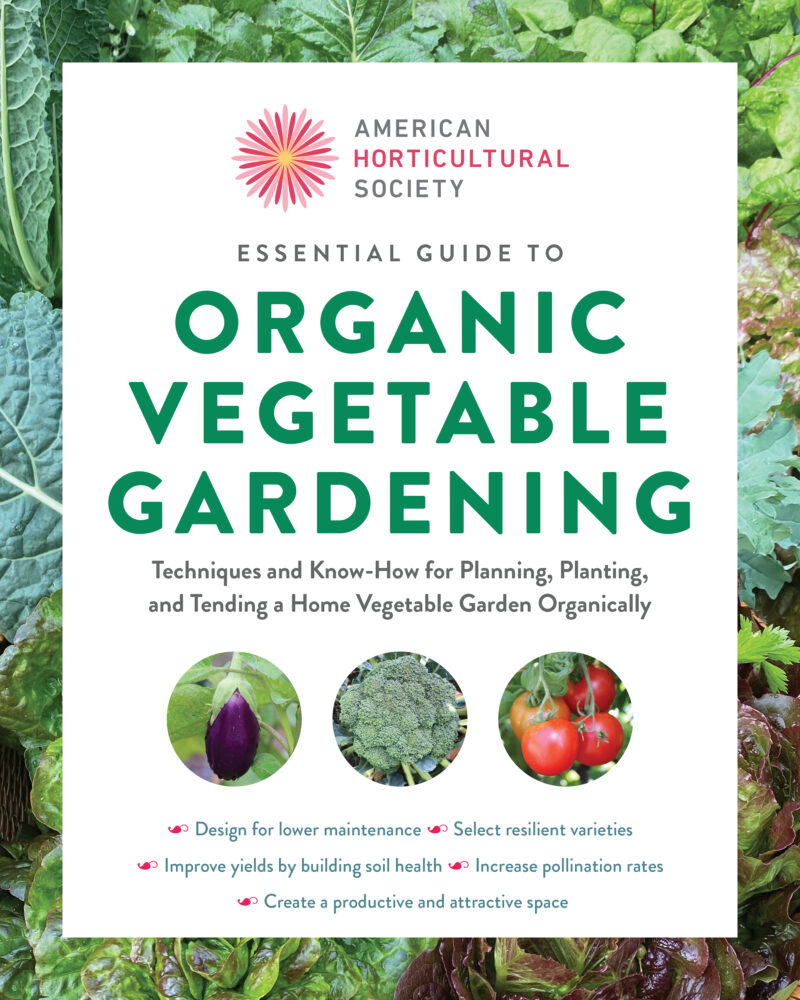
The American Horticultural Society is proud to announce that we are publishing two essential gardening guides with Cool Spring Press in early 2025: American Horticultural Society Essential Guide to Organic Vegetable Gardening and American Horticultural Society Essential Guide to Perennial Gardening. These guides will be the first new books from the AHS in over two decades and we could not be more excited to share with you our paperback guidebooks. The books are currently available for pre-order through our Publisher, Cool Springs Press, below.
AHS Essential Guide to Organic Vegetable Gardening will be released on January 7th and offers indispensable insight into growing a modern edible garden, at home. This book is meant to inform at-home gardeners across the country, and is applicable for all horticultural regions. The guide begins with an overview of the history of vegetable gardening in North American from indigenous cultures up to today’s biodiversity-nurturing growers. The AHS Essential Guide to Organic Vegetable Gardening provides all the necessary information for cultivating and finding success with an at-home vegetable garden.
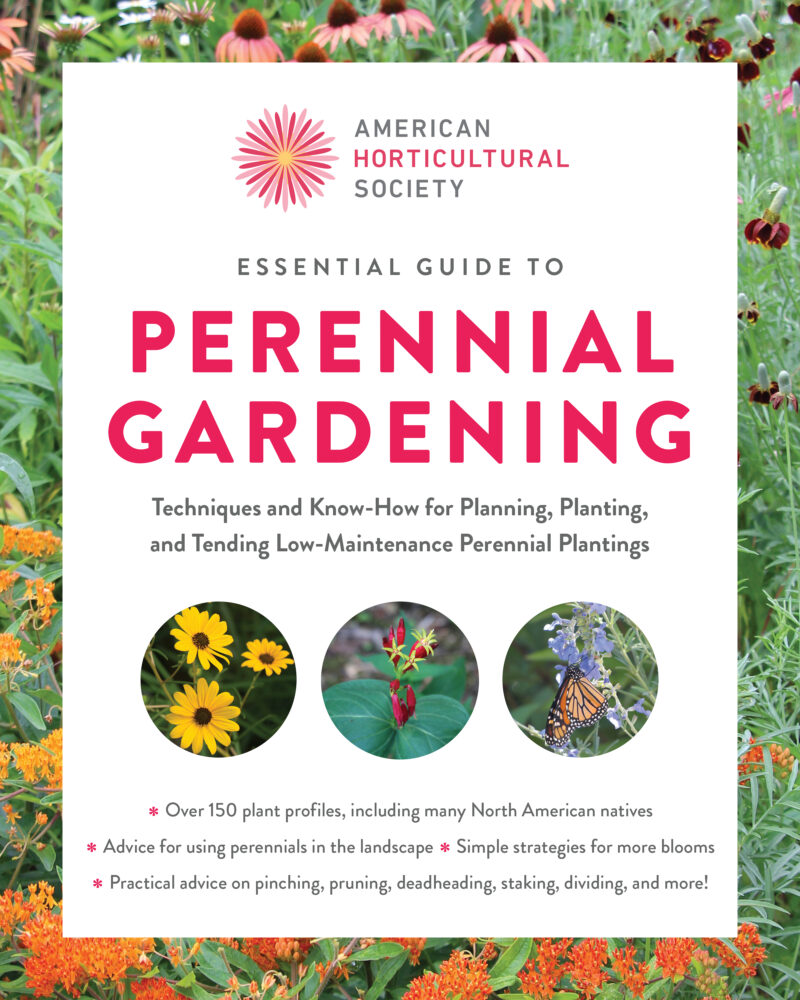
The second book, AHS Essential Guide to Perennial Gardening, will be released on February 4th. This guide offers a comprehensive and modern guide to cultivating and caring for perennial plants, including many native to North America. Our manual is designed to equip gardeners with knowledge and tips to successfully grow perennials with today’s ever-changing gardening challenges. This book takes a modern approach to perennial gardening by focusing on the garden as an ecosystem that depends on natural resiliency over human interference.
Please visit our publisher, Cool Spring Press, to read more about these fantastic books and to pre-order!
AHS Essential Guide to Organic Vegetable Gardening
AHS Essential Guide to Perennial Gardening
As we begin preparing for cooler months, we often shift our focus from outdoor gardens to indoor plants. Indoor gardening is a wonderful way to bring the tranquility of an outdoor garden inside your home. But what exactly is indoor gardening? According to The Spruce, indoor gardening is related to the act of growing a selection of plants inside that you would typically grow outside. Gone are the days of only growing plants in the spring and summer thanks to indoor gardening.
There are many benefits to indoor gardening for you and your family. Houseplants can act as natural air purifiers by absorbing carbon dioxide and releasing oxygen, enhancing the air quality of your home. Indoor plants are also known to reduce stress, improve productivity, and of course, they are beautiful to look at! Studies have shown that being around plants can help lower blood pressure, improve sleep quality, and even boost the immune system.
Indoor gardening is an enriching and fulfilling pursuit that brings nature into your daily life. Start small and watch as your indoor garden transforms your space and your well-being. Happy gardening!
Sources: The Spruce: https://www.thespruce.com/indoor-gardening-beginner-guide-5199347
Piedmont: https://www.piedmont.org/living-better/health-benefits-of-indoor-plants
The U.S. Department of Agriculture recently released its new Plant Hardiness Zone Map, a national standard by which gardeners can determine which plants are most likely to survive the coldest winter temperatures at a certain location.
The USDA describes the latest map, jointly developed by Oregon State University’s PRISM Climate Group and the USDA’s Agricultural Research Service, as the most accurate and detailed version it has ever released.
PRISM, part of the OSU College of Engineering, stands for Parameter-elevation Regressions on Independent Slopes Model. The previous version of the plant hardiness map, also based on PRISM data, was released in January 2012. The new plant hardiness map incorporates data from 13,412 weather stations, compared to the 7,983 that were used for the 2012 edition.
Viewable in an interactive format, the map is based on 30-year averages (1991 to 2020) for the lowest annual winter temperatures within specified locations. The 2012 edition was based on averages from 1976 to 2005.
“The addition of many new stations and more sophisticated mapping techniques using the latest PRISM technology led to a more accurate and detailed Plant Hardiness Zone Map but also produced localized changes that are not climate related,” said Christopher Daly, director of the PRISM Climate Group and the map’s lead author.
The plant hardiness map is divided into a total of 13 zones, each zone representing a 10-degrees-Fahrenheit range of temperatures. Each zone is then further divided into two half zones, with each of those representing a 5-degree range.
“Overall, the 2023 map is about 2.5 degrees warmer than the 2012 map across the conterminous United States,” Daly said. “This translated into about half of the country shifting to a warmer 5-degree half zone, and half remaining in the same half zone. The central plains and Midwest generally warmed the most, with the southwestern U.S. warming very little.”
Accompanying the new map is a “Tips for Growers” feature that provides information about Agricultural Research Service programs likely to be of interest to gardeners and others who grow and breed plants.
The approximately 80 million American gardeners and growers are the most frequent map users, according to the USDA. In addition, the USDA Risk Management Agency uses the map in setting certain crop insurance standards, and scientists incorporate the plant hardiness zones into research models, such as those looking at the spread of exotic weeds and insects.
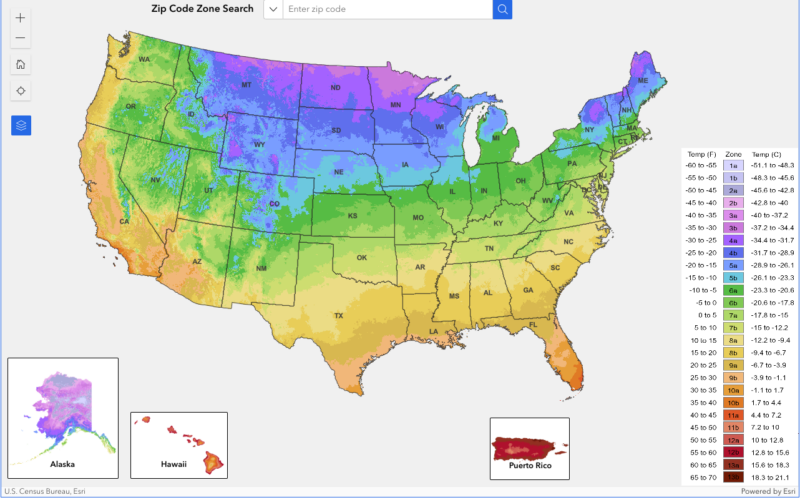
Happy National Pollinator Week! (June 19-25)
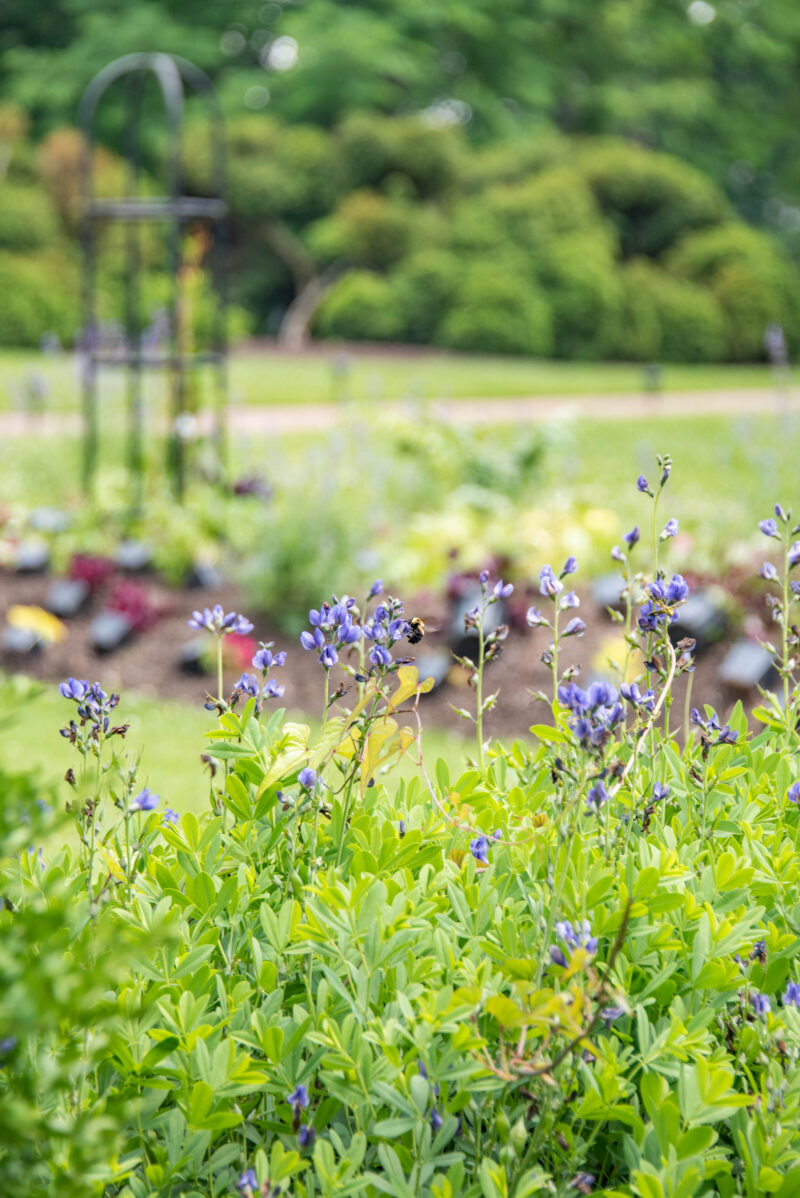
Supporting a natural ecosystem is something that home gardeners can do to combat loss of plant and animal species, from planting for pollinators, to getting to know your insect friends and foes, to creating bird-friendly winter gardens.
Last year, we compiled a variety of how-to articles about attracting pollinators, distinguishing beneficial insects from garden pests, and creating wildlife habitats for you from past issues of our bimonthly member magazine, The American Gardener. Check out our pollinator resources and find out how you can support the environment within your own garden!
Celebrate National Pollinator Week by making your garden welcome to a diversity of pollinators— and help create a healthier, more bountiful community for all. For additional ideas and a list of Pollinator Week activities near you, visit www.pollinator.org.
June is National Rose Month!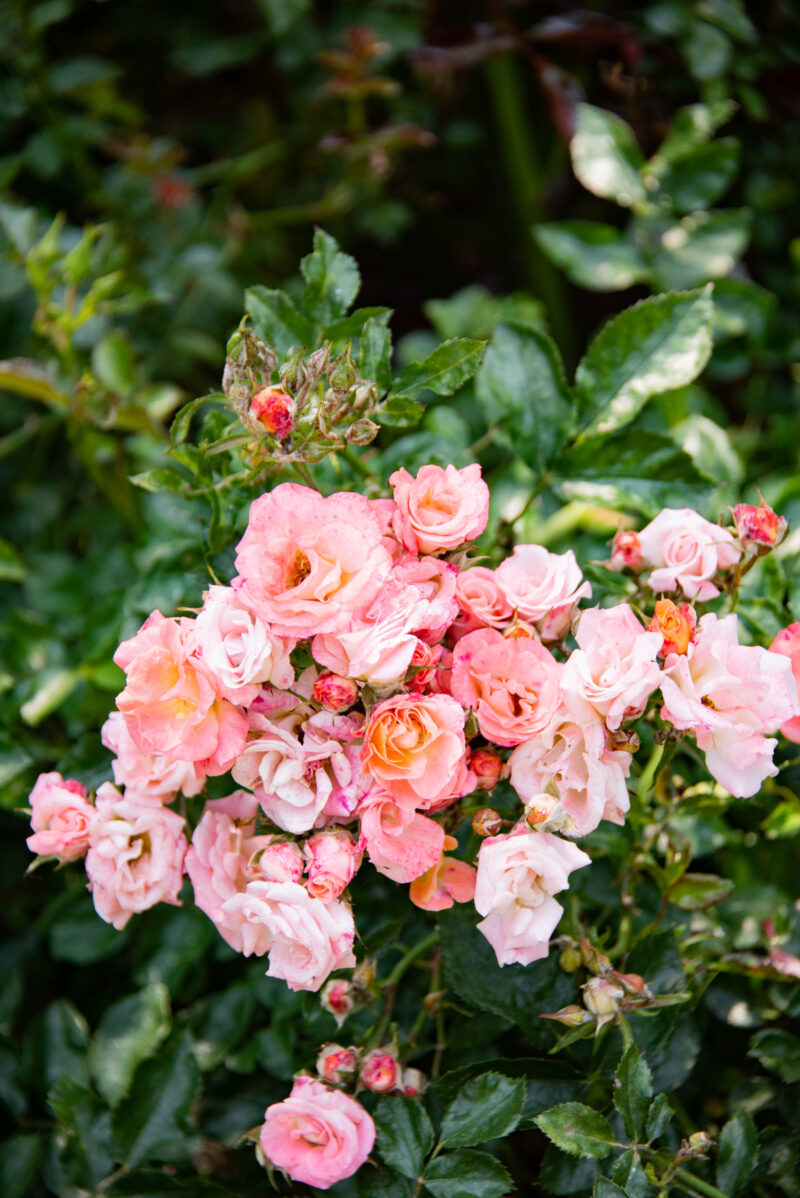
Roses have a long history of symbolism from love, peace, beauty, and the United States— In 1986, President Ronald Reagan signed a resolution making the rose the national flower of the United States of America. Full of fragrance and delicate petals, roses are some of the most versatile and classical garden plants.
Although they require careful planting and pruning, many variations of roses are not as hard to care for as some may think. Shrub and ground-cover bush roses are becoming more popular with gardeners around the country looking for a splash of fragrance in their home or garden. Ground-cover roses, often referred to as “carpet roses” are a lower maintenance rose option for those looking for the beauty of the rose without the higher effort upkeep.
You can read more about different types of roses at the National Rose Society’s website, and visit the Reciprocal Admissions Program (RAP) Garden: American Rose Society & Gardens of the American Rose Center in Shreveport, Louisiana.
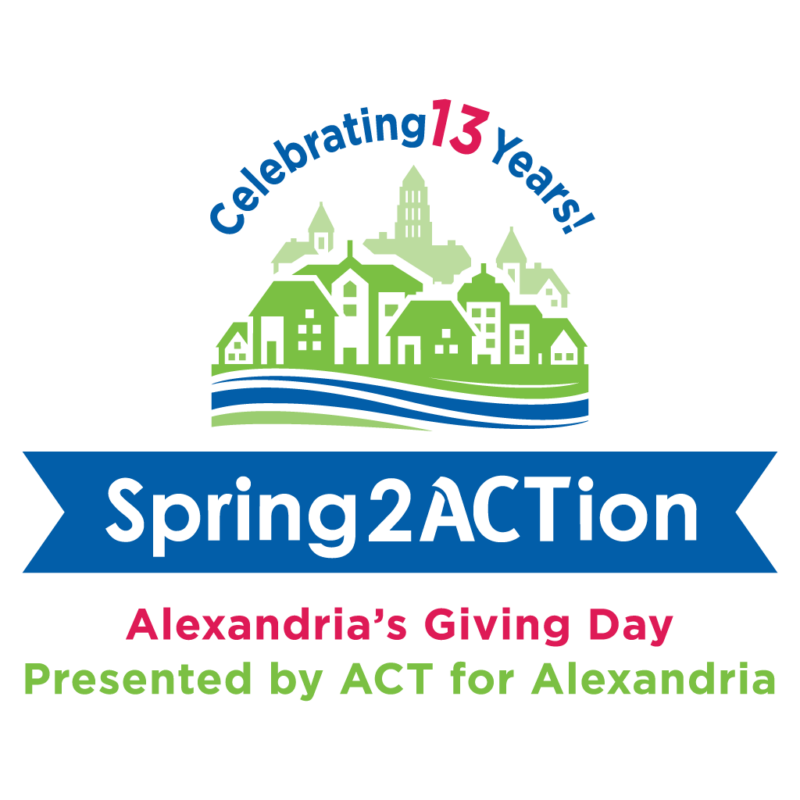 Wednesday, April 26 is the official Spring2ACTion Giving Day for the City of Alexandria, where AHS and its historic River Farm headquarters resides. This year, we celebrate 50 years at River Farm, where we live our mission of horticultural excellence, where we focus on honoring the past, leveraging the present and charting the future.
Wednesday, April 26 is the official Spring2ACTion Giving Day for the City of Alexandria, where AHS and its historic River Farm headquarters resides. This year, we celebrate 50 years at River Farm, where we live our mission of horticultural excellence, where we focus on honoring the past, leveraging the present and charting the future.
Once part of the farmlands that George Washington owned, the beautiful 25-acre gardens have provided a place of respite, inspiration, and beauty to countless visitors, fellow gardeners and nature enthusiasts. In recent years—in support of AHS’s increased focus on sustainable gardening—we have continued to implement and demonstrate Earth-friendly gardening practices at River Farm.
As a private, self-funded nonprofit without an endowment, we rely on the generosity of people like you to keep our sustainable gardening mission alive! Please consider making a donation during Early Giving or by the April 26 deadline to support River Farm’s maintenance and stewardship. You may donate here.
Thank you for helping to support River Farm!
“Even if I knew that tomorrow the world would go to pieces, I would still plant my apple tree today.”
– Martin Luther King, Jr.
In honor of Martin Luther King, Jr. Day, American Horticultural Society and River Farm will be closed on January 16. We encourage our staff and AHS members to volunteer to improve their communities on this National Day of Service.
Together, we are a family of gardeners sharing and planting seeds of hope, compassion, acceptance, equity, and peace.
~ The AHS Team
This year, AHS is celebrating 100 years of fostering innovation and passion for gardening. For a century, AHS has served as the nation’s most respected and longstanding gardening organization. We play a special role in empowering Americans of all ages to be responsible caretakers of the Earth. Help us celebrate this Giving Tuesday on November 29th by making a gift to the AHS today and it will be matched dollar for dollar up to $55,000. You’ll help us blend education, social responsibility, and environmental stewardship to inspire more Americans to become responsible caretakers of the Earth. Donate now.
Join influential Landscape Designer Larry Weaner and native plant expert Ian Caton as they explore the integration of restoration ecology and fine garden design. Applicable Regions: Eastern and Midwestern U.S. (Florida excluded). Presented by New Directions in the American Landscape (NDAL), the virtual sessions are $105 each and include a 100+ page, login-protected course manual. The session will be recorded live and viewable to registrants for three months after each live session date. Register today.
December 1, 1-4:30 PM EST
The Canopied Landscape: Woodlands, Edges, and Hedgerows
An ecology-based approach to woodland design is more like guiding a vegetative process than implementing a static planting plan. Guided succession can foster the orderly transformation from an open field to a multi-tiered forest through planting, managed natural recruitment, or a combination of the two. Under existing canopy, where few herbaceous species can be established through direct seeding, we will discuss the planting of small “seed source colonies,” and management strategies to encourage their proliferation into the larger landscape. Management techniques that are unique to woodlands including selective height cutting, sunlight manipulation, and assisted seed dispersal, will also be described in detail.
December 2, 1-4:30 PM EST
The Artistic Overlay: Making “Wild” Legible
Ecological design need not be a bitter aesthetic pill that our clients must swallow to do the right thing. The order inherent in our wild native landscapes is widely considered beautiful. By translating that ecology-based order into the aesthetically based language of fine garden design, the results can be much more universally embraced by our clients. In addition, Larry will illustrate how highly gardenesque – and even formal – elements can gracefully interact and intermingle with wilder woodland, shrubland and meadow compositions. This approach can result in landscapes that are both ecologically productive and visually pleasing to clients with a variety of aesthetic preferences.
December 15, 1-4:30 PM EST
Plants of the Open Landscape: Meadows, Old Fields, and Shrublands
In this session, native plant authority Ian Caton will examine plants of the open landscape that exemplify the ecological characteristics described by Larry Weaner in previous sessions. His presentation will span the successional period from herbaceous meadow, to mixed woody/herbaceous old field, to the ecologically important but often neglected clonal shrub thicket. He will also present a group of “workhorse” native species for the sunlit landscape that combine reliability and weed suppression with attractive aesthetic character.
December 16, 1-4:30 PM EST
Plants of the Canopied Landscape: Woodlands, Edges, and Hedgerows
In this session, native plant authority Ian Caton will examine plants of the canopied landscape that exemplify the ecological characteristics described by Larry Weaner in previous sessions. His presentation will include plants found at all of the woodland’s vertical layers, from canopy to understory. He will also discuss their specific abilities to integrate with the unique colonization strategies inherent in woodland development and enhancement. Finally, Ian will present a group of “workhorse” native species for the woodland, including those that combine reliability with desirable aesthetic characteristics.